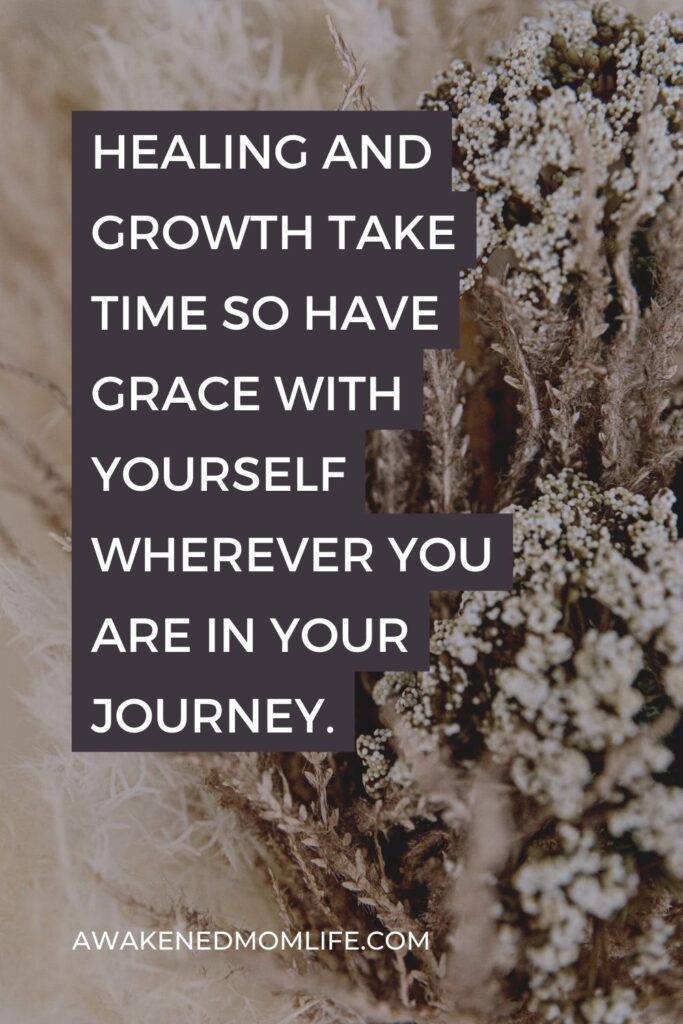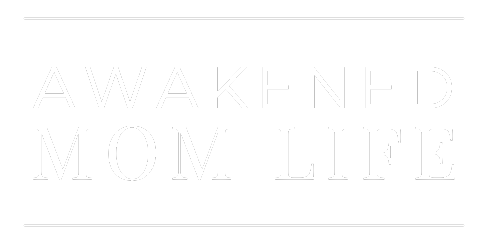Did you know that 75% of high-achieving women experienced troubled childhoods? Leading to a deep sense of imposter syndrome, shame, and self-doubt. I have struggled for a long time to talk about the topic of a toxic childhood. At first, I felt like a fraud for even thinking I had a bad childhood. I told myself that I was just too sensitive. Through a lot of therapy, introspection, and studying Buddhism, I began to realize that yes, I have deep trauma wounds from an abusive and toxic upbringing. It has taken me years to comprehend the impact of my childhood, and I am still uncovering layers of pain. For me, childhood trauma has been the root of imposter syndrome.
Is this the case for you too? If you are at the beginning of your growth journey, you may not even want to accept that you may have had a difficult childhood. Trust me, I know it can be hard to accept. If you have been exploring your growth for a while now, you may have embraced that childhood trauma impacted you and you are discovering new paradigms all the time.
As I continue on my own healing journey, I wanted to share how I’ve noticed trauma showing up in my own life. And how it created behaviors that led to my imposter syndrome without me even realizing it. My hope is that this will be able to reflect deeper on your own life and see where patterns may be showing up for you.
We all have core beliefs that shape who we are and these are shaped in childhood. Once you become more aware of your behavior, you can start to question the source of the behavior. It’s only when you are aware of the core belief that you can begin to re-shape it. These are subconscious beliefs and sometimes they can be hard to put into words, with practice you can begin uncovering these beliefs you hold for yourself.

Recognizing trauma patterns is the first step to healing.
CORE BELIEF #1 – “I TRUST OTHERS MORE THAN MYSELF.”
As a result of constant rejection and invalidation, I learned I could not trust myself. Growing up, I remember feeling like I was wrong about everything. When I tried to clean up the house, it was never good enough. When I expressed my needs and emotions, it was met with anger.
This belief led me to be an overachiever. Throughout my adult life, I always sought reassurance that I was making the right choice, and then sometimes felt paralyzed by fear of making the wrong choice. I desperately needed approval from someone in an authority position to give me approval. Those smalls moments of approval would lift my spirits temporarily but it never lasted because I fell back into self-doubt.
Crazy time this showed up in my life… During college, I was so scared of doing the wrong thing that I actually brought one of my parents to therapy with me so they could help me tell the doctor what I needed help with. Now that I can look back, I realize how toxic and unhealthy that entire situation was.
How this showed up in my career… I was the marketing manager for a small firm early in my career. During a meeting one day, the daughter of the president demanded to know why we were not meeting a goal the board had set. I explained that I wasn’t given enough budget and time to meet the goal. She continued to berate me in front of the entire company and told me to make up the information (falsify data), “just get it f*cking done, it’s not hard.” I was humiliated. Rather than following my ethics and doing what I knew was right, I followed her orders. I will never forget compromising myself because I trusted her more than I trusted myself.
After healing: I have to actively be self-aware of my thoughts when situations arise that are challenging to this core belief. Often in the workplace, if someone questions my ideas, I instinctively want to back down and give-in. This is when I push myself out of this comfort zone and support my ideas with back-up details or data. More often than not, it all works out. The key is to keep doing it. It takes repetition to change a core belief.
What to watch for: Are you staying quiet on a topic that you are absolutely knowledgeable about? Do you feel like your ideas aren’t as important as someone else’s? Do you feel unworthy of sharing your thoughts even though you’ve achieved great levels of success?

You only have one life, choose the one you want.
CORE BELIEF #2 – “MY WORTH IS DEPENDENT ON YOUR APPROVAL”
This one strongly relates to that last belief. I can’t pinpoint the start of this core belief for myself but I remember deeply how it showed up throughout my life. I’ve been (very) competitive for as long as I can remember and I have always felt that my worth was dependent on being good at things.
I started playing softball in middle school and one of my parents was the coach. I played competitively and recreationally until college. Though I hated it, I was good at it. I played to gain approval, but I never got it. Instead, I was teased by my team mates and my parent for being the girly girl on the field. I loved wearing make-up and having my hair done. In part due to my insecurity and in part because I love being creative. One of my proudest moments was when I finally quit. My parent continued to coach the team but I finally put up my boundary.
How this showed up in my career… this has shown up more than I’d like to admit. One role in particular comes to mind. I was in charge of a marketing department. I felt so proud of the team that I had grown and of the results we were seeing. We had met revenue goals I had only dreamed of being possible. Yet, my supervisor (with a low emotional IQ) always found things that went wrong. In spite of my success, I struggled to embrace it because of small mistakes (typos in emails, missing parts at trade shows, etc.). My depression overcame me and like a self-fulfilling prophecy, I began to make more mistakes. I wasn’t sure how to lead my team and felt like I was losing myself.
After healing: I will be honest this has been one of the most difficult to overcome because it runs so deeply. Now, I am aware of this need and I’m constantly working to see where it might be impacting me. My career has taught me the importance of celebrating my successes. It’s also important to remember that if I’m struggling in a role, that doesn’t mean “I suck,” it probably means it’s not a good fit. And that’s okay.
What to watch out for: Do you crave approval from authority figures in your life? Ask yourself, how do you truly feel about yourself if you don’t have your career, successes, etc? What if you didn’t get approval you were seeking? What do you feel? Does perfectionism rule your life? Do you put a heavy emphasis on your success?

Are you able to celebrate successes on your own? Or do you only celebrate when someone else points it out?
CORE BELIEF #3 – “I DESERVE TO FEEL BAD”
Feeling bad about myself has been a constant my entire life. Growing up in a household of pain, abuse, and suffering, you learn that joy is something that other people experience.
“Enjoy the good times while they last, because they don’t last,” is what I was constantly told.
My self-esteem was so low that I believed I didn’t deserve to exist, I didn’t deserve to take up space in the physical room in which I sat. My heart breaks now when I look back at my younger self. No child should feel this way. No person should feel this way. It took me many years to put this belief into words, for many years, it was just something I felt deep to my core.
Emotional neglect is a form of emotional abuse that is too often unrecognized and has devastating consequences. This happens when one of both of your parents can’t or won’t meet a child’s emotional needs for affection, support, and attention.
In children who suffer severe forms of emotional neglect during their early brain development, their amygdala actually grows and becomes more reactive. As a result, you are more prone to mental health issues as an adult. For women who have experienced emotional neglect in childhood, we are prone to stress, anxiety, and worry. There are many ways in which this can manifest. You worry about not being good enough, and you worry about being exposed as a fraud.
How this showed up in my career… I have taken more than my fair share of abuse in the workplace. As a woman with passion and tenacity, I have faced the gauntlet. When I was pregnant with my daughter, I developed hyperemesis gravidarum (severe morning sickness) and pubic symphysis dysfunction (causes severe pain as your pelvis spreads too far apart, kind of feels like your insides are ripping apart). I was beyond miserable for my entire pregnancy. When I was 6 months pregnant, I asked my female boss for accommodations. Honestly, I should have asked sooner.
It didn’t go as I would have hoped. I was asked to provide documentation of my special needs so we could determine a course of action. She wasn’t willing to accommodate my initial request of working from home one day a week because it would be unfair to others. It was at her discretion, I know because another manager had given the same type of accommodation to another woman who was pregnant as well. I limped along for a few more weeks. I would listen to conference calls while on mute from the bathroom so they couldn’t hear me vomit. I pushed myself physically and mentally to be okay but I wasn’t. Finally, after talking to my OBGYN, she put me on bedrest at 7 months.
After healing… I now put my health and safety first in all situations. It also dawned on me that I always associated pain with caring. The more pain I felt, the more I cared, which means I’m doing what I should be doing.
What to watch for: Do you find yourself struggling to embrace simple joys in life? Have you ever felt like you don’t deserve happiness? If you have felt a sense of heaviness in your life, take time to reflect on how you really feel about the emotion of happiness. Do you feel like if you feel bad that means you are working hard enough? Do you feel like if things feel too easy, you must not be working hard enough?

How do you truly feel about the emotion of happiness?
CORE BELIEF #4 “YOUR HAPPINESS IS MY RESPONSIBILITY”
Realizing that I was a people pleaser was something I discovered early in my healing. Yet, learning how to overcome this core belief would prove much more difficult.
I always knew if someone in our household was upset, because I was hyper-vigilant to everyone’s emotions. When one of my parents was upset, I felt like it was my job to help make them feel better–from cleaning the house to listening to their frustrations. If I couldn’t find a way to help, I hid.
Crazy time this showed up in my life… In my late twenties, I moved into an apartment with my boyfriend at the time (now my husband), and I was ecstatic. We had been looking for months for the perfect place to move. As soon as we signed the lease, I posted my excitement on Facebook to share with friends and family. I promptly received a furious text from one of my parents.
“How dare you put that up without telling me first!”
How this showed up in my career… As a woman, I’ve felt the extra burden of overcoming stereotypes in the workplace. For many years, I didn’t want to come off as “bitchy” or “needy” so I would allow others to take credit for my work. I would actually encourage them to take the credit because I wanted them to feel good about themselves. I didn’t feel worthy of taking the credit and felt like accepting credit was selfish. Of course, looking back, I see how detrimental this was to my self-esteem and my early career success.
After healing: I am responsible for my feelings and cannot be responsible for anyone else’s. I can be responsible TO other people but NOT for them. This is one that I have to be very mindful about because I can revert back to old behavior too easily. As an empath, I am still very aware of how others feel. Nowadays, I have several tools that I use to create an energetic barrier to prevent becoming entangled in the emotions of others.

Childhood trauma is complex. Therapy is absolutely crucial to healing and it’s been a huge part of my journey. Exploring other avenues of personal development (like Awakened Mom Life Academy) is also important because it helps to uncover areas that sometimes are missed in therapy. For me, I discovered the process to healing involved tackling my imposter syndrome from multiple angles. And like pulling back the layers of an onion, each layer I pull reveals a new lesson. It takes time so have grace with yourself wherever you are in your journey.














